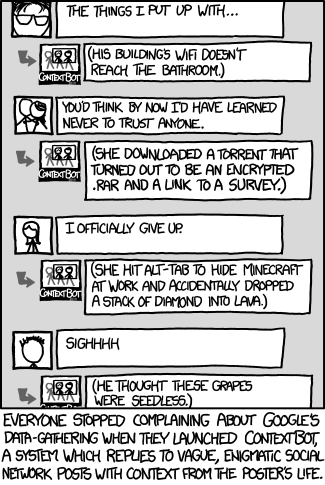I have never been more disillusioned about politics in Australia. There are policies I like from all the parties, but policies I abhor more from each platform. Navigating this election is going to be tough.
Here’s what I’m thinking through, personally, as I try to cast my very valuable vote – let’s not forget that being able to take part in the political process where you’re choosing between least bad options is an incredible privilege, globally and historically speaking.
One of the things I’ve become convinced of as I’ve developed and tried to articulate what I think is a Christian approach to the political world here on this blog is that a Christian approach to politics is an approach to politics that is framed by the gospel and that presents the gospel. How you vote is part of how you live as a Christian – how you vocalise your participation in the democratic process on Facebook or at the water cooler is part of your communication of the gospel (provided people know you are a Christian).
So here’s my snapshot to how to vote as a Christian:
Have your vote shaped by Jesus’ actions at the cross, and use your vote to testify to Jesus as the true king.
Can you do this by voting for any or every Australian political party? On the one hand, no. Sadly, I don’t feel like there’s a party platform that ticks all the boxes, so it really is a matter of picking what your policy priorities are. But can you in good conscience pick any major party in the Australian election, or many of the minor parties, and articulate why you’re voting for that party in a way that demonstrates that you belong to Jesus? I think you can.
I’ll explain a little more.
The Bible Stuff
There are, I think, four passages that shape my approach to thinking about this election.
This passage from Matthew 22 is something of a “purple passage” for Christians when it comes to politics. It’s one I’ve turned to time and time again to push for a strong separation between church and state, it’s led me to be pretty libertarian, pushing for a government that doesn’t intervene in private affairs. And while I think there’s validity to that thinking, I think there’s something even more profound at play that has changed how I think about our participation in the political process as Christians.
15 Then the Pharisees went out and laid plans to trap him in his words. 16 They sent their disciples to him along with the Herodians. “Teacher,” they said, “we know that you are a man of integrity and that you teach the way of God in accordance with the truth. You aren’t swayed by others, because you pay no attention to who they are. 17 Tell us then, what is your opinion? Is it right to pay the imperial tax to Caesar or not?”
18 But Jesus, knowing their evil intent, said, “You hypocrites, why are you trying to trap me? 19 Show me the coin used for paying the tax.” They brought him a denarius, 20 and he asked them, “Whose image is this? And whose inscription?”
21 “Caesar’s,” they replied.
Then he said to them, “So give back to Caesar what is Caesar’s, and to God what is God’s.”
22 When they heard this, they were amazed. So they left him and went away.
I think Jesus is making a huge claim here, based on Genesis 1.
27 So God created mankind in his own image,
in the image of God he created them;
male and female he created them.
Jesus isn’t just saying obey Caesar – he’s claiming ownership over those who are made in God’s image. If you wanted to speculate a little further you might make a link between “inscription” and the law being written on the hearts of those who have the Holy Spirit. But that’s a pretty interesting jump to attempt.
If you can be bothered reading my thesis you’ll see that I think our capacity as image bearers is functional – it describes how God made people to function. As images that point people to him (there’s a pretty convincing argument that Eden is a temple, images in temples represented and manifested the God who made them – there’s a cool jump from that to Jesus being “the image of the invisible God” in Colossians 1). So part of this political theology, I’d argue is participating in the church-state relationship in a way that shows that we are images of God. It’s not just the temple thing – coins, with images, functioned as political communication tools – every transaction in Rome, and the value of the coin, was guaranteed by the emperor’s head, and the other images and inscriptions celebrated and communicated the emperor’s achievements.
So how do we function as images of Jesus in the political process in modern Australia? That’s what I reckon is the big question to answer when deciding how to vote.
I’d say, as Christians, we’re not just images of God where that’s an abstract thing and we have to guess at what we were created to be based on the first two chapters of Genesis – as Christians we have something more concrete to shape our lives around. Jesus.
Here’s passage 2… Romans 8:28-30.
28 And we know that in all things God works for the good of those who love him, who have been called according to his purpose. 29 For those God foreknew he also predestined to be conformed to the image of his Son, that he might be the firstborn among many brothers and sisters. 30 And those he predestined, he also called; those he called, he also justified; those he justified, he also glorified.
And not just Jesus. But the incarnate and crucified Jesus. The Jesus who became a human – observable and touchable, and who spoke out against the problems with broken political systems by claiming to be God’s promised king. But who was also put to death by the hostile state – a nice combined effort from the Jewish religious establishment and the Roman political machine. I’d suggest that “taking up your cross” or “imitating Paul as he imitates Christ” is part of what it means to be conformed to the image of Jesus.
So the question then, is how do we vote, as Christians, in a way that takes up our cross – where our decision in the voting booth is shaped a desire to bear the image of God through self-sacrifice for the sake of others (and who is the other?).
Here, I think, is Paul’s paradigmatic account of the “image of Jesus” I think this based on verses 1 and 5 – I think our union with Christ is a big part of our image bearing function. and the Christian life based on the cross, from Philippians 2. This is how you show that you belong to Jesus.
Therefore if you have any encouragement from being united with Christ, if any comfort from his love, if any common sharing in the Spirit, if any tenderness and compassion, 2 then make my joy complete by being like-minded, having the same love, being one in spirit and of one mind. 3 Do nothing out of selfish ambition or vain conceit. Rather, in humility value others above yourselves, 4 not looking to your own interests but each of you to the interests of the others.
5 In your relationships with one another, have the same mindset as Christ Jesus:
6 Who, being in very nature God,
did not consider equality with God something to be used to his own advantage;
7 rather, he made himself nothing
by taking the very nature of a servant,
being made in human likeness.
8 And being found in appearance as a man,
he humbled himself
by becoming obedient to death—
even death on a cross!
So I’d say voting as a Christian means putting aside your own interests – maybe your own economic comfortability or security – your own upwards progression in the world, your own interests for the sake of others.
Shaped by the way Jesus did that when he lowered himself to become human and die on the cross. Humiliated.
Here’s what Cicero, a Roman statesman, said about crucifixion.
“The very word ‘cross’ should be far removed, not only from the Roman citizen, but from his thoughts, his eyes and his ears… the mere mention of such a thing is shameful to a Roman citizen and a free man.” Cicero, Pro Rabiro
The cross involved giving up a huge amount of status – being humiliated – for the sake of others. How do we vote like that?
I think Paul uses the Philippians 2 framework in Romans 12, and throughout his letters to the Corinthians. I think Romans pivots on chapter 8. Up to chapter 8 Paul establishes what it means to be human in the light of the gospel (I think Romans 7 describes being a sinner made in God’s image with the capacity and desire to do good, but inability to do it). In the following chapters he deals with what it looks like to live a life transformed by the Gospel. He works through the ethical (and political) implications of the cross and the transformed minds that come through being united with Jesus.
Transformed minds must necessarily lead to transformed votes.
In Romans 12 he seems to be echoing Philippians 2 (especially when it comes to life in the church) – but I’d say it also means thinking about how to live visibly, as God’s image bearers shaped by the cross…
Therefore, I urge you, brothers and sisters, in view of God’s mercy, to offer your bodies as a living sacrifice, holy and pleasing to God—this is your true and proper worship. 2 Do not conform to the pattern of this world, but be transformed by the renewing of your mind. Then you will be able to test and approve what God’s will is—his good, pleasing and perfect will.
3 For by the grace given me I say to every one of you: Do not think of yourself more highly than you ought, but rather think of yourself with sober judgment, in accordance with the faith God has distributed to each of you…
9 Love must be sincere. Hate what is evil; cling to what is good. 10 Be devoted to one another in love. Honor one another above yourselves. 11 Never be lacking in zeal, but keep your spiritual fervor, serving the Lord. 12 Be joyful in hope, patient in affliction, faithful in prayer.13 Share with the Lord’s people who are in need. Practice hospitality.
14 Bless those who persecute you; bless and do not curse. 15 Rejoice with those who rejoice; mourn with those who mourn. 16 Live in harmony with one another. Do not be proud, but be willing to associate with people of low position. Do not be conceited.
17 Do not repay anyone evil for evil. Be careful to do what is right in the eyes of everyone.18 If it is possible, as far as it depends on you, live at peace with everyone. 19 Do not take revenge, my dear friends, but leave room for God’s wrath, for it is written: “It is mine to avenge; I will repay,” says the Lord. 20 On the contrary:
“If your enemy is hungry, feed him;
if he is thirsty, give him something to drink.
In doing this, you will heap burning coals on his head.”
Christian living – and a Christian approach to politics – then involves sacrificial living. It involves being counter-cultural – deliberately. And it involves using our transformed minds to “test and approve” God’s will. But, we get a pretty good clue for what living according to God’s will looks like in the verse before, and the verses after… the sacrificial love for others.
Just for a little bit more pushing this image of God/death of Jesus thing – check out 2 Corinthians 4…
3 And even if our gospel is veiled, it is veiled to those who are perishing. 4 The god of this age has blinded the minds of unbelievers, so that they cannot see the light of the gospel that displays the glory of Christ, who is the image of God. 5 For what we preach is not ourselves, but Jesus Christ as Lord, and ourselves as your servants for Jesus’ sake. 6 For God, who said, “Let light shine out of darkness,” made his light shine in our hearts to give us the light of the knowledge of God’s glory displayed in the face of Christ.
7 But we have this treasure in jars of clay to show that this all-surpassing power is from God and not from us. 8 We are hard pressed on every side, but not crushed; perplexed, but not in despair; 9 persecuted, but not abandoned; struck down, but not destroyed. 10 We always carry around in our body the death of Jesus, so that the life of Jesus may also be revealed in our body. 11 For we who are alive are always being given over to death for Jesus’ sake, so that his life may also be revealed in our mortal body. 12 So then, death is at work in us, but life is at work in you.
Peter has some pretty good stuff to contribute too. Check out 1 Peter 2 and 3.
2:11 Dear friends, I urge you, as foreigners and exiles, to abstain from sinful desires, which wage war against your soul. 12 Live such good lives among the pagans that, though they accuse you of doing wrong, they may see your good deeds and glorify God on the day he visits us.
13 Submit yourselves for the Lord’s sake to every human authority: whether to the emperor, as the supreme authority, 14 or to governors, who are sent by him to punish those who do wrong and to commend those who do right. 15 For it is God’s will that by doing good you should silence the ignorant talk of foolish people. 16 Live as free people, but do not use your freedom as a cover-up for evil; live as God’s slaves. 17 Show proper respect to everyone, love the family of believers, fear God, honor the emperor.
3:13 Who is going to harm you if you are eager to do good? 14 But even if you should suffer for what is right, you are blessed. “Do not fear their threats; do not be frightened.” 15 But in your hearts revere Christ as Lord. Always be prepared to give an answer to everyone who asks you to give the reason for the hope that you have. But do this with gentleness and respect, 16 keeping a clear conscience, so that those who speak maliciously against your good behavior in Christ may be ashamed of their slander. 17 For it is better, if it is God’s will, to suffer for doing good than for doing evil. 18 For Christ also suffered once for sins, the righteous for the unrighteous, to bring you to God. He was put to death in the body but made alive in the Spirit.
Implications for voting (or politicking) as a Christian
Here are some of the implications that I’ve drawn from the above Biblical data (and some other bits) – they’re not the only relevant bits of thinking. We’ve also got to figure out how we participate in the process in a post-Christian world that will be increasingly hostile to the gospel. And part of my thinking is drawn from a commitment to the idea that not only is the way we live (ethos) part of our testimony, but the way we speak about how we live and why (logos), is also part of the narrative we weave while bearing God’s image – so I’m in favour of talking about the political process. I’m also keen not to alienate people who disagree with the particular stance I take, and keen to love and respect those who are willing to enter public office.
Bear Jesus’ image and take up your cross with your vote and in how you talk about it
I want people to know that I’m weighing up the issues involved in this election based on a “transformed mind” – but ultimately based on the sacrifice Jesus made on my behalf, even though I was his enemy. And I really want to actually authentically be doing that – not just putting it on. Self sacrifice is paradigmatic for me. I’m keen to not look to my interests, but the interests of others – especially those who can’t vote.
Love others and “do good” with your vote
Love for others is the motivation behind Jesus becoming flesh, and the motivation for Christian living. Loving others and “doing good” is also part of how we bear witness to Jesus, and bear his image.
Be “Incarnate” as foreigners…
Jesus became part of the world. Join a political party. Participate in the process. Meet candidates. Call talk back radio. Blog. Discuss policy on Facebook. Become human. Get a sense for why the people you’ve grown up not voting for prioritise the things they do. Remember that as a Christian you’re a citizen of a different kingdom that transcends national borders and patriotism, but that you live in Australia so loving Australians is a good place to start.
Be wise with your vote (be informed)
Voting is an amazing privilege. And an amazing opportunity to live out the gospel in front of others – but it’s complicated. Life is complicated. It’s going to involve compromise. It’s going to involve self-sacrifice. It’s inevitably going to involve choosing a least bad option – and that will look different for different people. There is no party with a monopoly on the Christian vote or the voice of God. Not even Family First.
The Bible Society has put together a nice (though limited) guide to the election and the ABC’s political compass is worth having a go at to weigh up your priorities and see where that leaves you.
Go beyond doing your duty to Caesar to do good
I think this is part of the tension Jesus articulates with the taxes thing – we are called to be good and dutiful citizens and to obey the law and vote and stuff. But our vote is not where our contribution to public life ends. If refugees are your thing – join a refugee group, get to know some people who have arrived by boat (or even by plane – it’s more likely you’ll come across them). If the environment is your thing then figure out how you can make a positive contribution to the environment that goes beyond the political process. It can be pretty easy to think our government and its policy limits what we can do in particular areas, and to outsource that sort of care. But this relates back to the incarnation thing.
Witness to office bearers (and other people who are interested in politics
I love this bit in Acts 26, where Paul is appearing in front of Roman authorities, on trial – and he tells his story and the Gospel – and gets this response:
28 Then Agrippa said to Paul, “Do you think that in such a short time you can persuade me to be a Christian?”
29 Paul replied, “Short time or long—I pray to God that not only you but all who are listening to me today may become what I am, except for these chains.”
I hope that in any political discussion be it with office bearers in the capacity of advocacy (I’m on a committee for the Pressy church that does this stuff, but I’m thinking about the letters/emails I send to politicians in my personal capacity as well) that there’s a real chance that the gospel will be clearly seen in the positions I’m advocating. That’s why I think it’s almost untenable for Christians not to be pro welcoming asylum seekers – you can’t tell the story of the gospel while saying we should close the doors to paradise because people might be evil or we might be full, or they might be taking something of ours…
Honour current, future and potential office bearers
Romans 13 is a pretty good place to go on this one – I reckon one of the differences between empire and democracy is that the people you slam today might be your leaders tomorrow, so it pays to respect anyone in office, and anyone running for office. Because they are willing to give their time to governing.
13 Let everyone be subject to the governing authorities, for there is no authority except that which God has established. The authorities that exist have been established by God. 2 Consequently, whoever rebels against the authority is rebelling against what God has instituted, and those who do so will bring judgment on themselves. 3 For rulers hold no terror for those who do right, but for those who do wrong. Do you want to be free from fear of the one in authority? Then do what is right and you will be commended. 4 For the one in authority is God’s servant for your good. But if you do wrong, be afraid, for rulers do not bear the sword for no reason. They are God’s servants, agents of wrath to bring punishment on the wrongdoer. 5 Therefore, it is necessary to submit to the authorities, not only because of possible punishment but also as a matter of conscience.
6 This is also why you pay taxes, for the authorities are God’s servants, who give their full time to governing. 7 Give to everyone what you owe them: If you owe taxes, pay taxes; if revenue, then revenue; if respect, then respect; if honor, then honor.
I suspect real damage has been done for the Christian voice through immoderate speech about those who have been characterised as political opponents – I can’t imagine, for example, the Greens viewing Christian voices with much charity if they hold the balance of power in the senate. But this no doubt works on a local level with your local member, as much as it does on the party level.
There is of course the tension that some rulers are doing things that don’t honour God or carry out his will. But that’s not a new dilemma.
Pray for current, future, and potential office bearers
So I’d say the answer here is 1 Timothy 2. We should pray for those in authority. It seems the prayer is linked to the above.
2 I urge, then, first of all, that petitions, prayers, intercession and thanksgiving be made for all people— 2 for kings and all those in authority, that we may live peaceful and quiet lives in all godliness and holiness. 3 This is good, and pleases God our Savior, 4 who wants all people to be saved and to come to a knowledge of the truth. 5 For there is one God and one mediator between God and mankind, the man Christ Jesus, 6 who gave himself as a ransom for all people. This has now been witnessed to at the proper time.
At the end of the day – whatever the outcome in the election – the sky isn’t going to fall in. Christians will still be free to live good lives, freely, among the pagans as a witness to Jesus. God will still be in control, and prayer will still work. Perspective is important.
My reflections on the Australian political landscape and this election
I mentioned above that I’ve never been more disillusioned with the political scene. And it’s true.
If I was voting out of economic self-interest I’d vote for the LNP. I think they tend to produce prosperity better. Or I’d vote for Labor – fast internet for the rest of my life is something that excites me, and the Coalition is just asinine on broadband policy.
But I’m asking what it means to vote for others – what it means to vote for the vulnerable. The voiceless. The future generations. It’s a complicated balancing act – do I prioritise abortion – and lives lost there (probably the Coalition, definitely not Labor)? Do I prioritise Asylum Seekers (the Greens, definitely not the Coalition or Labor)? Do I vote on indigenous issues? Foreign Aid? Economic management or environmental management – for the sake of future Australians?
It’s hard. It takes wisdom. It takes prayer. And it takes speaking out and participating in the public discussion from a renewed mind shaped by the cross.
Or joining a party. The only way for Christians, who are serious about the cross, to become less disenfranchised with the the political process is to speak into the policy making process. Joining a party won’t be for everybody – I’m not sure it’s all that healthy for people who want to speak apolitically to all parties, and lovingly to other Christians who are strongly affiliated to a party to join a party, but it’d be very healthy for the parties to have a Christian voice speaking out during the process.
My vote and articulating why I vote on issues like Asylum Seekers – or abortion – are opportunities to demonstrate the transforming of my mind, and my priorities. I’ve had a go at articulating this in previous posts – but check out David Ould’s attempt to show how the gospel shapes his thinking on Asylum Seekers.
Imagine a country which operates a radical asylum seeker policy. Instead of waiting for people to arrive on airplanes or even on boats as they do in Australia, this imaginary country charters boats and planes at great expense and sends them to countries where they know there is a desperate need for people to be rescued…
But that’s the gospel pure and simple. God the Father sends the Lord Jesus Christ into a world which opposes Him (John 1:10; 3:16). Jesus willingly dies for those who are His enemies (Col. 1:21, Rom. 5:8). This is the amazing, and dare I say it, ludicrous nature of the good news of what Jesus came to do.










